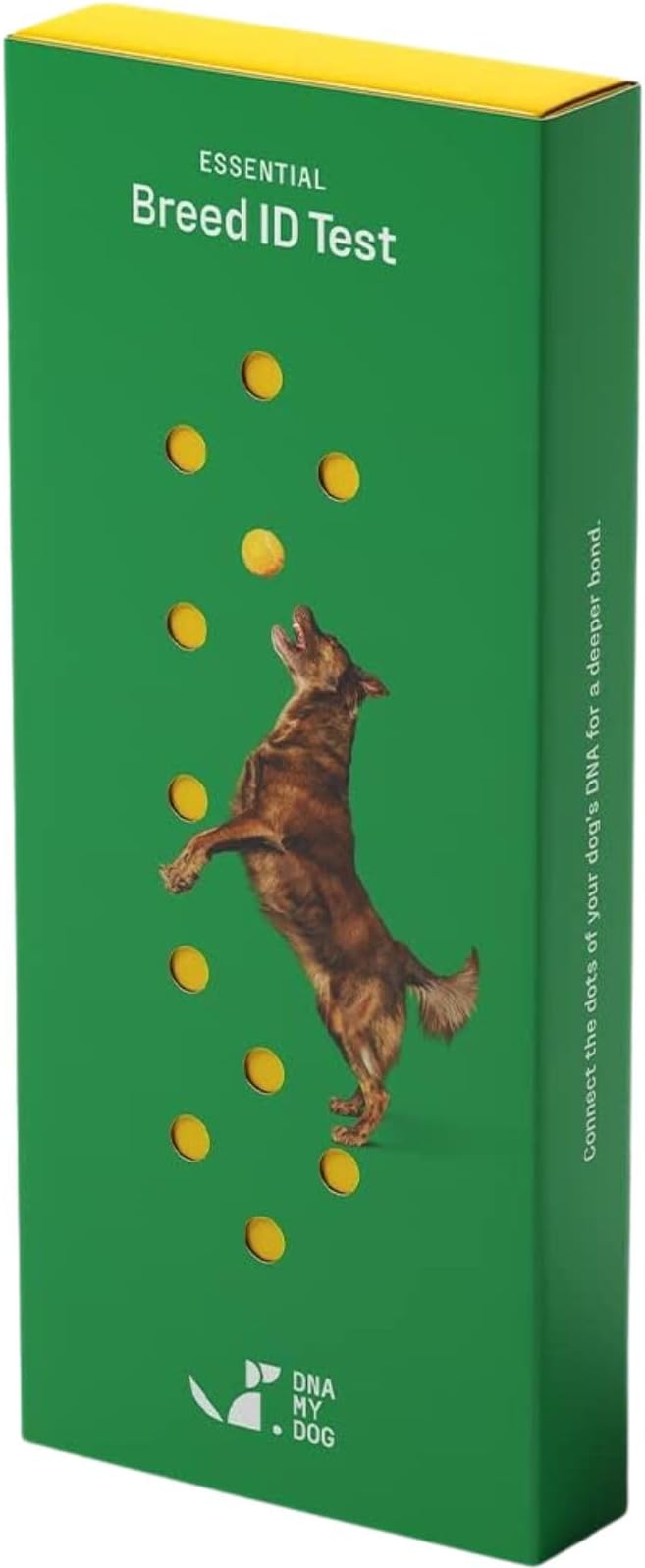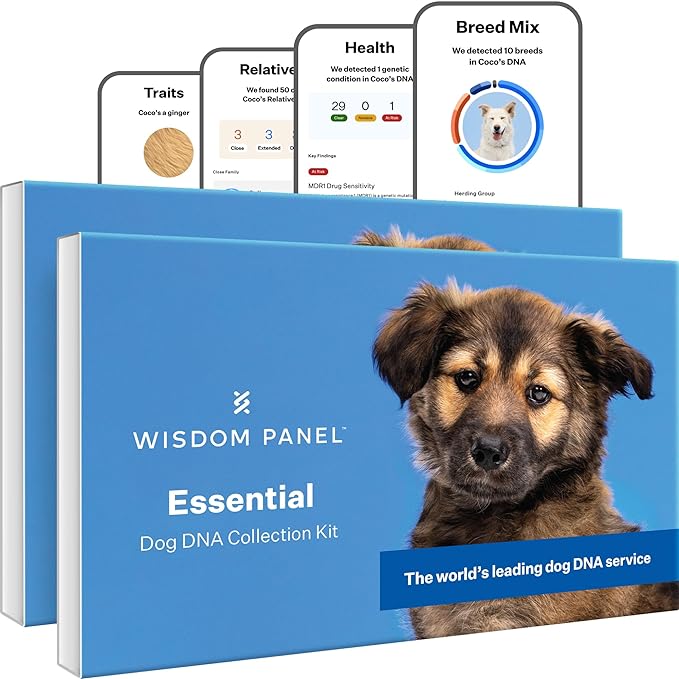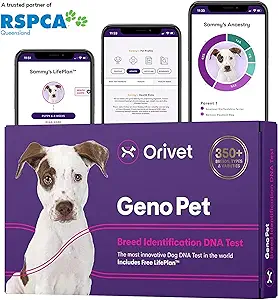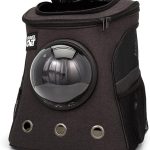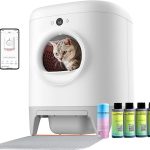You’re not alone in wondering about your dog’s ancestry – over 1 million dog owners have turned to DNA testing to uncover their pet’s genetic roots. As you consider joining their ranks, you’re likely wondering which test is best for your furry friend. With so many options on the market, it can be overwhelming. But what if you knew about the top three dog DNA tests that stood out from the pack? Tests that could reveal your dog’s breed heritage, personality traits, and even health risks. Stay tuned to find out which ones made the cut and why they’re worth considering for your dog.
Contents
- Dna My Dog Essential Test
- Wisdom Panel Essential Dog DNA Kit
- Orivet Genopet Dog DNA Test Kit
- Factors to Consider When Choosing Dog DNA Tests
- Frequently Asked Questions
- Can Dog DNA Tests Detect Health Issues in Mixed-Breed Dogs?
- Are Dog DNA Test Results Accepted by Kennel Clubs and Breed Registries?
- Can I Use a Dog DNA Test to Identify My Dog’s Ancestry?
- Do Dog DNA Tests Require a Blood Sample or Just a Cheek Swab?
- How Long Does It Take to Receive Dog DNA Test Results?
- Conclusion
Dna My Dog Essential Test
If you’re a dog owner seeking a thorough breed identification test that accurately detects over 300 breeds, the DNA My Dog Essential Test is an ideal choice, particularly for mixed-breed dogs like German Shepherds, Poodles, or Chihuahuas.
This test kit is lightweight and compact, weighing only 0.8 ounces and measuring 9.5 x 4 x 0.3 inches.
You’ll receive a soft, sterile cheek swab to collect a sample from your dog, and then register the kit online and mail it back.
In 2-3 weeks, you’ll get an email with the results, which include breed identification, genetic age, and tips on breed care.
Plus, you’ll learn about your dog’s personality traits, making this test a great way to understand your furry friend better.
Best For: Dog owners, especially those with mixed-breed dogs, who want to identify their dog’s breed and learn about their personality traits and breed care.
Pros:
- Accurately identifies over 300 breeds and provides genetic information on personality traits
- Easy to use with a soft, sterile cheek swab for sample collection and quick results in 2-3 weeks
- Helpful customer support and online registration and result interface
Cons:
- Some customers report receiving incorrect or inconsistent results, questioning the company’s legitimacy
- Negative reviews criticize the accuracy of the test results
- Some customers report issues with customer support and the company’s response to concerns
Wisdom Panel Essential Dog DNA Kit
Frequently, dog owners seeking the most accurate breed identification and extensive health insights for their pets turn to the Wisdom Panel Essential Dog DNA Kit, which screens for 365+ breeds and 30 genetic health conditions.
You’ll get a detailed breed report down to 1%, revealing essential health insights to help you create a personalized care plan with your vet.
With this kit, you’ll also discover 51 traits, meet relatives through Wisdom Panel’s database of 4 million dogs tested, and even learn about your dog’s ancestry.
The quick, painless swabbing process yields fast and accurate results.
With an impressive 4.6 out of 5-star rating from 17,263 customers, it’s clear that this kit delivers on its promises.
Best For: Dog owners seeking accurate breed identification and extensive health insights for their pets.
Pros:
- Screens for 365+ breeds and 30 genetic health conditions, providing detailed breed reports and essential health insights.
- Fast and accurate results with a quick, painless swabbing process.
- Allows dog owners to discover 51 traits, meet relatives, and learn about their dog’s ancestry.
Cons:
- None mentioned in the product information or customer reviews.
- None mentioned in the product information or customer reviews.
- None mentioned in the product information or customer reviews.
Orivet Genopet Dog DNA Test Kit
With its exhaustive breed screening of over 350 breeds, types, and varieties of canines, the Orivet Genopet Dog DNA Test Kit is an ideal choice for dog owners seeking a detailed understanding of their pet’s ancestry.
You’ll receive a report that breaks down the percentage of each breed that makes up your dog, giving you a thorough picture of their genetic makeup.
The test is easy to administer, requiring only a quick cheek swab, and results are typically available in 2-3 weeks.
You’ll also get access to a personalized wellness plan, known as LifePlan, which takes into account your dog’s breed, age, weight, and lifestyle to provide tailored health recommendations.
Best For: Dog owners who want to understand their pet’s ancestry and receive personalized wellness recommendations based on their dog’s breed, age, and lifestyle.
Pros:
- Screens for over 350 breeds, types, and varieties of canines, providing a detailed report of the dog’s genetic makeup
- Easy to administer, requiring only a quick cheek swab, and results are typically available in 2-3 weeks
- Includes a personalized wellness plan, known as LifePlan, which provides tailored health recommendations based on the dog’s breed, age, weight, and lifestyle
Cons:
- Some customers have reported issues with the test, including inconclusive results and long wait times
- The test is not 100% accurate, and results may vary depending on the quality of the DNA sample
- Customer service has received mixed reviews, with some customers reporting difficulties in getting help with issues or concerns
Factors to Consider When Choosing Dog DNA Tests
When choosing a dog DNA test, you’ll want to weigh several key factors to guarantee you get the most accurate and helpful results.
You’re looking for a test that will provide you with reliable breed identification, convenient sampling, and quick turnaround times.
Accurate Breed Identification
You need to weigh several key factors to guarantee accurate breed identification when choosing a dog DNA test.
Breed identification is a vital aspect of dog DNA testing, and you want a test that can accurately detect your dog’s breed ancestry. Look for a test that uses a large breed database, as this increases the chances of identifying your dog’s breed. The database should include a diverse range of breeds, including rare and mixed breeds.
Additionally, consider the test’s resolution, which refers to its ability to detect breed ancestry at the grandparent or great-grandparent level. A higher resolution means a more accurate breed identification.
Another essential factor is the test’s methodology. Opt for a test that uses advanced genotyping technology, such as single nucleotide polymorphism (SNP) analysis. This method provides more accurate results than older technologies.
You should also check the test’s accuracy rate, which should be above 90%. Finally, read reviews and ask for recommendations from veterinarians or other dog owners to get an idea of the test’s performance.
Test Kit Contents Matter
Once you’ve identified a test that can accurately detect your dog’s breed ancestry, it’s time to examine the test kit contents that will make the sampling process smooth and stress-free for your pet.
You’ll want to confirm the kit includes a sterile cheek swab or blood sample collection tool to guarantee a safe and hygienic sampling process.
Clear instructions on how to collect and return the sample, as well as an online registration and result interface, are also a must.
A good test kit should provide multiple cheek swabs or a sufficient amount of material to collect a sample, facilitating accurate results.
The kit’s contents should be non-invasive and safe for dogs, making the testing process comfortable and stress-free for your pet.
Remember, the quality of the test kit’s contents directly affects the accuracy and reliability of the test results.
Ease of Sample Collection
A hassle-free sample collection process is essential in dog DNA tests, as it directly impacts the quality of the sample and, subsequently, the accuracy of the results.
You want a process that’s quick, easy, and stress-free for your dog. That’s why non-invasive cheek swab samples are commonly used – they’re painless and take less than a minute to collect.
To obtain a high-quality sample, it’s vital to follow the provided instructions carefully. This will increase the likelihood of receiving accurate results.
A simple and easy-to-use collection method can make all the difference. It can motivate you to complete the test and get the insights you need about your dog’s breed, health, and traits.
When choosing a dog DNA test, look for a kit that offers a straightforward sample collection process. This will give you peace of mind and confirm that you get the most out of the test.
Turnaround Time Importance
When every minute counts, a dog DNA test’s turnaround time can be a make-or-break factor in addressing potential health issues or making informed breeding decisions.
You need to know that some tests can deliver results in as little as 2-3 weeks, which is vital when time is of the essence. On the other hand, longer turnaround times can lead to delayed veterinary care or breeding decisions, resulting in substantial consequences for your dog’s health and well-being.
You shouldn’t settle for tests that take 3-6 weeks or more, especially if you require timely results.
A quick turnaround time not only facilitates prompt action but also reduces anxiety and uncertainty for you as a dog owner.
When choosing a dog DNA test, consider the turnaround time in relation to your specific needs and requirements. If you’re dealing with a health crisis or need to make breeding decisions, a fast turnaround time is imperative.
Don’t compromise on this critical factor, as it can profoundly impact your dog’s life. By prioritizing turnaround time, you’ll get the insights you need to make informed decisions and take prompt action to safeguard your dog’s health and happiness.
Company Reputation Matters
You’ll want to dig into a company’s reputation before choosing a dog DNA test, as a provider’s credibility can substantially impact the accuracy and reliability of your results. A reputable company will have a proven track record of providing accurate and reliable results, which is essential when it comes to understanding your dog’s health and ancestry.
You can start by checking online reviews from multiple sources, such as Google, Yelp, and Trustpilot, to get a sense of the company’s customer satisfaction ratings. Look for red flags like frequent complaints about inaccurate results or poor customer service.
Research the company’s expertise and experience in the field of canine genetics. Check if they’ve any certifications or affiliations with reputable organizations, such as the International Society for Animal Genetics.
You should also verify if the company is transparent about their testing methods, data storage, and privacy policies. By doing your due diligence, you can increase your chances of choosing a reliable and trustworthy dog DNA test provider.
Test Result Interpretation
Your dog’s DNA test results are only as good as your ability to understand them, so vital to consider the factors that affect test result interpretation when choosing a dog DNA test.
To accurately interpret the results, you’ll need to understand how the test works, including the breed identification process, which involves analyzing your dog’s DNA against a reference database of over 300 breeds.
The results will typically break down your dog’s breed composition, showing the percentage of each breed present in their DNA. Some tests may also provide info on genetic age, personality traits, and breed-specific health risks.
When interpreting the results, consider the test’s accuracy, which can vary depending on the DNA sample quality and the company’s database.
Key to understanding the results is to recognize the limitations of dog DNA testing, such as potential inconclusive results or incorrect breed identification.
Frequently Asked Questions
Can Dog DNA Tests Detect Health Issues in Mixed-Breed Dogs?
You’re wondering if dog DNA tests can detect health issues in mixed-breed dogs. The answer is yes, they can! These tests analyze genetic markers to identify potential health risks, even in mixed-breed dogs with uncertain ancestry.
Are Dog DNA Test Results Accepted by Kennel Clubs and Breed Registries?
You’re wondering if kennel clubs and breed registries accept dog DNA test results. Generally, they don’t, as their breed standards focus on physical characteristics, not genetic markers.
Can I Use a Dog DNA Test to Identify My Dog’s Ancestry?
You’re curious about your dog’s roots! Yes, you can use a DNA test to identify your dog’s ancestry, revealing their breed mix and tracing their lineage back generations.
Do Dog DNA Tests Require a Blood Sample or Just a Cheek Swab?
You’ll be relieved to know that most dog DNA tests don’t require a blood sample, which can be stressful for your pup. Instead, you’ll typically need to collect a simple cheek swab or a mouth swab for the test.
How Long Does It Take to Receive Dog DNA Test Results?
You’ll typically wait 2-4 weeks for dog DNA test results, but some companies promise faster turnaround times, like 1-2 weeks, depending on the type of test and lab processing efficiency.
Conclusion
Considering the top-rated dog DNA tests, you’ve got a trio of excellent options to uncover your furry friend’s genetic secrets.
By choosing the right test, you’ll gain valuable insights into their breed, personality, and health.
For instance, if you have a rescue pup like Max, who’s suspected to be a mix of German Shepherd and Golden Retriever, a DNA test can confirm the breeds and even identify potential health risks, helping you provide a tailored care plan.
